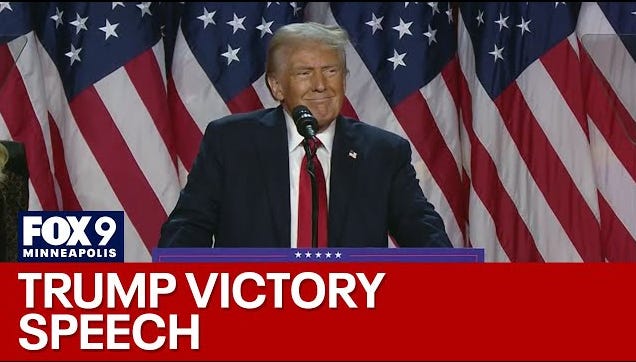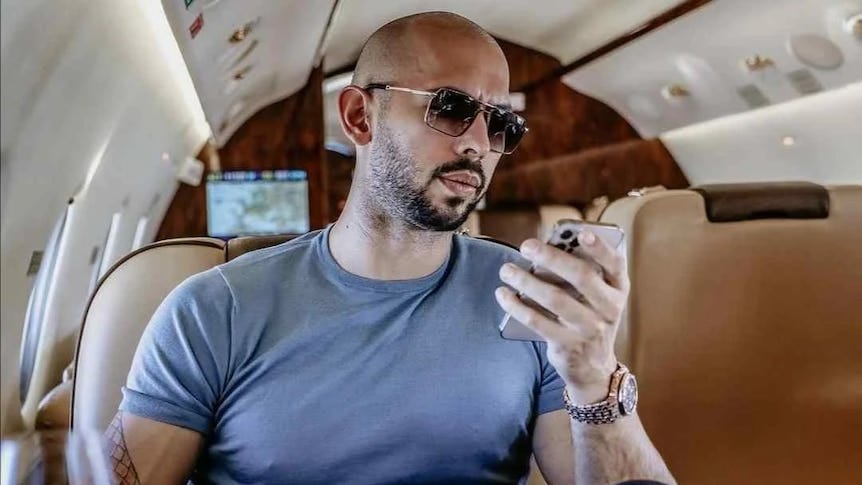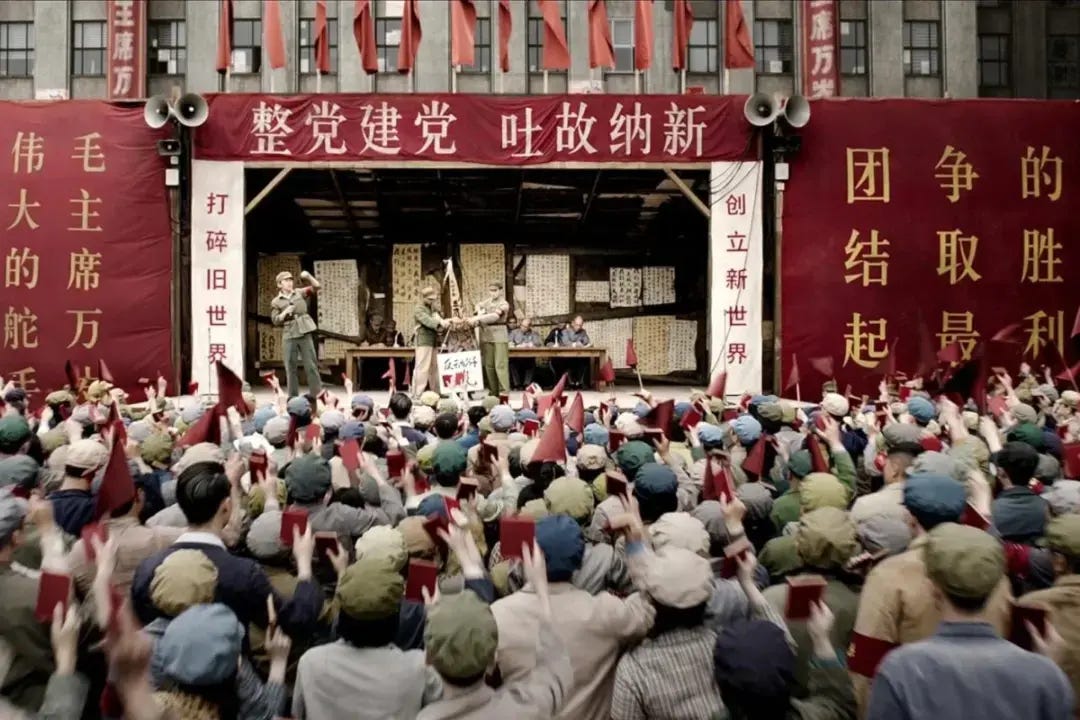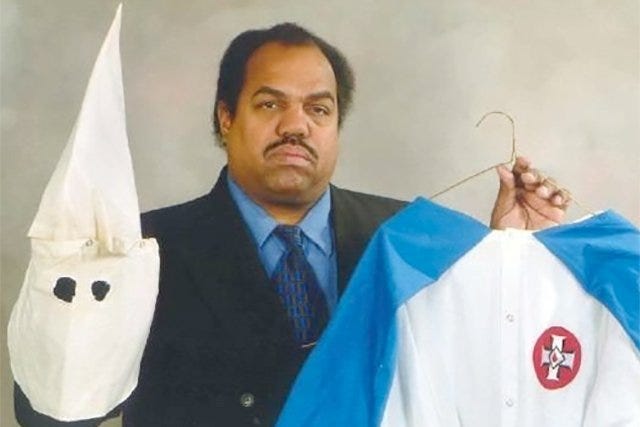So many questions for us to muse on. What the hell just happened? How will Trump govern? What does it mean for the rest of the world? But above all: what do we all do now? Four thoughts.
1. Don’t see “we” as the left
Here come four years plus of cruelty, intolerance, stupidity, vindictiveness, environmental despoilation, and selfishness.
So of course we need to rally for the opposite. For kindness, tolerance, wisdom, looking out for the vulnerable, looking out for the planet, the common good.
But let’s not fall into the trap of saying these are the values of ‘the left’. It would be a truly terrible idea for us to claim that these values belong only to people at one end of the political spectrum.
Because now more than ever, we need to stand up for why these are universal human values.
Values that all of us should be able to sign up to, against which all of us should be held to account.
We need not just to tell that story but above all organise around it; to build redemptive political power in times that are going to feel increasingly apocalyptic.
The movement that does this work is going to have to be as broad as it can possibly be. And that means winning over, and welcoming back, people who supported Trump in 2024.
2. Empower young men
Young men were at the forefront of Trump’s victory. And we need to think long and hard about the sense of powerlessness that led so many of them to do so.
These guys didn’t vote for policy arguments. Their disaffection goes way deeper than that. They are, as Ally Fogg noted in a great thread the morning after, “lonely, resentful, depressed, and very, very angry”.
This, my brother Jules Evans argues, is exactly where far right influencers like Andrew Tate or Jordan Peterson thrive. Because beneath the misogyny and hate speech, what you find is a kind of self-help.
Jules was one of the founders of the modern revival of Stoicism and wrote a bestselling book on it, and his take is that the heart of what influencers like these offer is:
the basic moral wisdom (BMW) you find in Stoicism - stop projecting all your emotional problems onto external things or people, and recognize that you are to some extent causing your suffering with your beliefs. Take responsibility for your mindset and your actions. Work on yourself. And over time your life will get better.
It’s the same BMW you find in Buddhism, and in the wisdom literature of other religions. It’s what you find repackaged in every successful self-help teacher, from Dale Carnegie to Steven Covey to Tony Robbins to Landmark Education to Jordan Peterson.
Stop complaining and blaming external circumstances for your problems. Take responsibility for your mind, your body, your work, your life. Make your bed. Tidy your room. Go to the gym. Eat healthily. Set your goals. Face your fears. It’s really basic stuff.
This kind of approach has been around for centuries because it works. It will change your life. For young men who’ve felt powerless for years, it’s like catnip. And here’s where it gets dark.
Once you’ve hooked them on the BMW, you can take your loyal followers anywhere — how to choke women, how to be a pimp, why you should only eat meat, why western civilization is collapsing, why democracy is bullshit, why Putin is a hero, why you should give all your money to Landmark or Scientology, why woke culture is an existential threat to humanity, why fascism isn’t so bad and Hitler had some interesting things to say.
Why is it only far right misogynists with hateful views who are offering this stuff? Good question.
Great question.
Jules argues that part of the answer is that mainstream liberal culture, dominated as it is by the highly educated, progressive left, has “a tendency to promote victim narratives” rather than offering practical self-help. He continues,
It tends to collectivise and socialise everything, and only offers people the solidarity of resistance to the unfair regime, without offering them a way to improve their life now. That’s fine if you’re already a well-off graduate, and can afford to complain about the unfair regime online. But if you’re really at a low ebb, you want a way to improve your life now. Jordan Peterson is going to help you a hell of a lot more than Alexandria Ocasio-Cortez, because for all his histrionics and prejudice, at least he offers you the BMW.
It’s a provocative piece, but I think he’s on to something really important; a trick that we’ve been missing for years and need to catch up on quickly. His conclusion:
If you want to counter toxic influencers, break their monopoly over the BMW. Reclaim basic moral wisdom, reclaim commonsense philosophy. The left in the 19th century offered workers both self-improvement and collective action. Samuel Smiles’ book Self-Help was a workers’ classic (indeed its original title was The Education of the Working Classes). Marcus Aurelius’ Meditations was hugely popular in working men’s libraries. The labour movement preached self-reliance, self-improvement, dealing with your shit, and working to change society. The affluent, graduate Left now only offers people a way to complain online. It’s no surprise people turn to pimps and half-cracked prophets offering them the basic moral wisdom.
3. Embrace relational activism
Now would be a really good time to get past the shrill progressive finger-wagging and get serious about more relational forms of change-making.
Don’t get me wrong: we absolutely need to talk about issues like gender, race, sexuality, colonialism, and climate. I don’t see any way to a breakthrough future that does not involve working them through.
But there is such a risk here of coming across as preachy, judgmental, and self righteous.
One problem if we fall into that trap: it pisses people off, and alienates them when what we actually need to do is build far broader consensus about ways forward.
Worse, it fires up the ‘authoritarian dynamic’ identified by Karen Stenner, the political psychologist who predicted the rise of Trump-like figures (article, podcast) - when people with a psychological preference for shared moral order feel under ‘normative threat’… and suddenly tip into wanting authoritarian rule.
This is what we have just witnessed taking place on an epic scale in the US. Trump couldn’t have been more explicit about his intentions. And millions of people said: hell yeah.
So what’s the alternative? Two places we could start are with tackling loneliness, and bridging divides.
Start with loneliness. We all know that we’re living through an epidemic of loneliness, and that it’s worst for (you guessed it!) young men.
We know loneliness can make us more self-centred, less empathetic, and more vulnerable to extremism - and hence that it’s something totalitarian regimes actively want, as Hannah Arendt tirelessly pointed out.
Which means that we need to make building belonging central to everything we do right now. Especially in small groups.
People thrive in small groups. We see this all the time at Larger Us, where small groups are central to the trainings we run: people are shy to start with, and then 6 weeks later, they can’t believe how much they’ve bonded and what this has unlocked for them.
Small groups also just happen to be the perfect building blocks for effective movements for change, as Margaret Mead famously observed, and as campaigns like Obama 08 spectacularly demonstrate.
So let’s build them.
Second, bridging divides. It is absolutely possible to talk about charged issues like sexuality, gender, or colonialism without falling into the shrill progressive trap. How do I know? Because I keep meeting inspiring pioneers who prove it.
People like Dave Fleischer, the LGBTQ activist who started ringing doorbells in highly conservative districts in LA and having conversations with the people who answered - in the process, inventing ‘deep canvassing’.
Or Corinne Fowler, who led the National Trust’s work to unpack the colonial histories of its properties, became a hate figure for right wing culture warriors, but made a point of engaging them - frequently with surprising and uplifting results.
Or Daryl Davis, the African American blues musician who’s persuaded over 200 people to leave white supremacist groups like the KKK, through the power of curious conversations (we have a Larger Us Podcast with him coming out tomorrow, by the way).
These people are heroes to me.
Not just because of their bravery and integrity. But because they show that no-one is beyond redemption. Not even actual KKK members.
And I don’t know about you but that’s the kind of hope I need right now.
4. Build power everywhere
Let’s be honest: even when we win elections, it isn’t enough. Because the truth is that governments can’t save us. Not on their own.
I’ve seen government on the inside, as a civil servant, a special adviser to two cabinet ministers, and at the UN, and nothing I’ve seen makes me think that governments - of any political stripe - are up to the challenge of what we’re heading into.
None of us really believed a Harris Presidency would fix wage stagnation, solve the fentanyl catastrophe, sort out health care, end childhood poverty, get to net zero, or overhaul the justice system. We just thought it would be less bad than the alternative.
Just like none of us really believes that a Starmer government here in the UK will fix housing, the immigration system, the NHS, social care, or the implosion of local councils. We were just exhausted by the 14 year circus that preceded it.
Technocrat administrations like these are infinitely preferable to corrupt populists. But in the end, it’s still just managed decline. We need something far more visionary, ambitious, hopeful and transformative than what a Joe Biden, a Keir Starmer or an Olaf Scholz can offer.
Back in 2020, David Steven and I wrote about four possible futures after Covid, which we called the Long Crisis Scenarios.
One of them, ‘Big Mother’, imagined a world in which government elbows everyone else aside and tries to do everything itself.
It’s ambitious, and raises expectations sky high. But it’s also slow, inefficient, and really bad at innovating or learning from its mistakes. When it gets it wrong, people feel betrayed and anger surges.
I feel like this is part of what we just saw in the US, after 4 years of Biden’s deliverism. And I worry we could so easily see something similar in the UK, next time around.
So what’s the alternative? That’s the question that David and I set out to answer in one of our other scenarios, which we called ‘Winning Ugly’.
In this future, there’s no heroic moment of victory with everyone cheering, like at the end of an 80s movie. Instead it’s a long, hard slog, in which we’re faced with crisis after crisis. The trauma is profound. But together, we make it through, bloodied but still standing.
How?
Above all because of what’s happening in places - especially the kind of places where change has been experienced not as opportunity but as loss. Places forgotten about by distant central governments. Places that overwhelmingly voted Leave in 2016, and Trump in 2024.
In this scenario, there’s a massive shift in where power lies. Instead of governments holding all the cards, it’s communities that are calling the shots. They’re getting organised, doing democracy on steroids, involving everyone - business, charities, faith communities, and most of all citizens - because it’s an all hands on deck emergency.
Government, crucially, is all in on this process. Instead of crowding everyone else out, it’s crowding everyone else in - following communities’ lead and looking to support in any way it can. Investing, enabling, listening, connecting.
The whole process is hugely innovative and experimental. Communities try stuff out. Lots of it doesn’t work. When that happens, they learn from it, avoid blame, and share the learning as transparently, widely and quickly as possible - not just within but between communities.
Overall, the picture is distributed, not centralised, but it’s still coherent. This isn’t every community left to fend for itself (something we envisaged in another scenario, ‘Fragile Resilient’). It’s a future in which the whole is far more than the sum of its parts.
And a big part of what drives the process is stories. Stories that bring communities together, that keep us going as we come to terms with how much won’t go ‘back to normal’, and that over time help us to make sense of where we are, where we’re trying to get to, how to get there - and underneath it all, who we are.
This is a really hard moment. Lots of us are reeling. I know I am. It’s fine to take time to lick our wounds and hide under the duvet for a while. But this is where we find ourselves. And, when we’re ready, there’s work to do.
Links I liked
Senator Chris Murphy (Dem, Connecticut) had a great thread on Twitter (I refuse to call it X!) on what happened in the election, if you haven’t seen it.
This YouTube from Robert Wright on how to resist Trump mindfully - above all, by resisting the temptation to react as he expects and wants us to - is excellent.
Looking for a real world example of the kind of community self-organising described above? Check out what’s happening in Grimsby in the north-east of England - it’s awesome.
Maria Popova is always great, and this piece of hers from back in March, on the power of defiant goodwill and the art of beginning afresh, is just lovely.








Brilliant as always Alex, thank you 🙏 Curious to hear how you think about Larger Us’ role in ‘Winning Ugly’? And other roles you see for organisations and individuals in this scenario!
“Jules argues that part of the answer is that mainstream liberal culture, dominated as it is by the highly educated, progressive left, has “a tendency to promote victim narratives” rather than offering practical self-help.” — wondering if your brother has read Ted Kaczynski because he makes the argument surrounding victim narrative, The Manifesto. I’m no fan of Kaczynski as he was a terrorist and murderer. And he did predict some of the current sociopolitical developments.
I do agree to some extent because, to me, the dynamics reminds me of Karpman’s triangle.
https://www.attachmentproject.com/psychology/drama-triangle/
It is connected not only to early attachment issues and trauma, but also by social and cultural reinforcement.
This drama has played itself out in the political sphere. People are either named a victim, oppressor or a rescuer. If you are assigned the role as oppressor — it’s very difficult to overcome that labeling. Who wants to play the role of the oppressor? And, furthermore, if you see yourself as a ‘victim’ — and that message is reinforced and rewarded by the people around you, a person has little incentive to change their perception of themselves. This is a common stumbling block among survivors who get caught up in victimhood. There’s no way to empower oneself with that mindset. In this sense, the progressive agenda that played out in liberal cities failed — big time. Young people are given message that there are no expectations, no consequences or accountability. That’s permissive and neglectful as a parenting strategy or as a social reform policy. At the same time, they aren’t offered much hope either. GenZ is known as most cynical generation ever. They also commit much more sociopathic, violent crimes as they show a complete disregard for their victims or remorse for the crimes that they commit. They often see privilege which they resent, and often rightfully so, because they cannot see a path outside of poverty. They see no viable path forward with the cost of living and low wage jobs. Even a college degree is no guarantee.
Social media and hashtag identity culture has not helped matters. Be somebody else you’re nobody. Better be someone who stands out with #ADHD or #bipolar or #genderfluid or #gayvisibility than someone who is less identifiable. Most young people struggle with identity and fitting in. As we know, social media has us all addicted for acceptance, appreciation and love. However, social media cannot substitute for the role of teachers, parents and religious and community leaders. (Bruce Perry, Gabor Mate, Dan Siegel have all written about it.) Epidemic suicide rates because young men and women feel a sense of despair and hopelessness.
I think it would be a mistake to blame the left, though, as I don’t believe in the United States that we have an adequate safety net. We don’t have sufficient mental health services. Schools and communities often lack the resources to provide programs that would provide intervention for youth. America is one of the wealthiest countries in the world. However, public educational system is poor. Sports, competition and leisure activities are more important than academics for most families. Crime in major cities is getting worse because, frankly, many children do not have proper role models. As I used to be a middle school teacher, I know many kids committing crimes such as carjacking, theft and acts of violence are most likely grandchildren of children I taught. These kids were called crack babies in the 1980s and 1990s. Many of the children I taught in the inner city ended up in jail. Some of them were probably killed or died of drug abuse. If parents end up in prison, if you drop out of school, join a gang, what happens to their children?
We have a whole generation of young people who have been abandoned and thrown away in large numbers. Might not be your kid, but if we’re not looking out for the rest of the community, what kind of world are we going to experience in another twenty or thirty years?